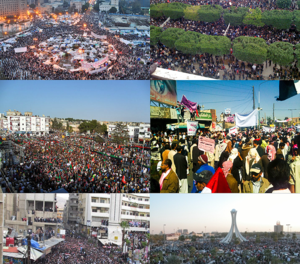By Ahval
The recent escalation of, first the war of words and then physical encounters in the Aegean Sea and off Cyprus, necessitates a new appraisal of Turkey’s policy towards its neighbours and of its liabilities vis-à-vis the European Union and NATO.
Ankara’s bellicose rhetoric and actions are direct consequences of a foreign policy choice, even if this choice is intended to feed the nationalist wave at home ahead next year’s elections. Elections or not, rulers in Ankara have made a choice to challenge past alliances and partnerships as well as the responsibilities deriving from them. They have decided to go it alone in a very difficult and risky international environment fuelled by overconfidence, reassured by the West’s appeasement policy and Russia’s courting. Taking full advantage of and playing with country’s geographical location they seem resolute to take their share of fossil fuels thought to exist in the Aegean seabed and off Cyprus. The energy hunger of Turkey is a strong drive.
Let us briefly assess the West’s stand vis-à-vis Turkey. Westerners are keen to stick with President Recep Tayyip Erdoğan for four major reasons: to continue to sell goods, in particular arms and to bid for juicy engineering projects for which there is a lack of local expertise; to keep Turkey in NATO so to avoid pushing it into Putin’s lap; to reward Erdoğan for his abandoning of EU membership and in the short-run, to ensure that Turkey continues to block the mass movement of refugees, migrants and now ex-jihadists towards Europe.
Consequently Western declarations and reports are systematically self-censored, over-cautious and helpless. But they, in turn, constantly hearten Ankara, which redoubles its bellicose rhetoric and actions. The latest examples are the gross avoidance of condemning Turkish attack on the Kurdish enclave of Afrin in northern Syria, as well as Turkish threats against Cyprus and Greece.
In view of these circumstances one needs to re-evaluate the policy options at hand, especially those that are taken for granted. I would briefly examine two of these policy myths: the leverage deriving from Turkey’s EU prospects and the leverage based on the re-unification talks in Cyprus.
Turkey’s EU prospects are stone dead. Until the official end of the present status of “negotiating country” that may happen in April, the two sides will continue to pretend things are proceeding normally.
In Europe, there is no government, nor public opinion in favour of Turkey’s EU membership.
In Turkey, according to a recent study , 73 and 67 percent of Turks have unfavourable views of the EU and NATO respectively. Turkey under Erdoğan’s iron fist is being de-Westernised at an accelerated pace, forcibly reversing the two-century-old trend, and leaving no room for any Western bond in the future.
More critically, the end of Turkey’s EU membership bid cancels and supersedes the achievements of last 20 years in terms of good bilateral relations with EU member states. The bellicose rhetoric and actions of the last years against a number of EU countries, EU politicians and citizens are strong signals of the Turkish centrifugal drive.
Turkey’s contractual obligations towards its neighbours deriving from EU membership prospects were not limited to diplomatic relations. Today two infrastructure projects that have a direct bearing on EU countries and which require due impact assessment are proceeding without it. These are the Akkuyu nuclear power plant project, close to Cyprus and situated in an area prone to earthquakes, and the so-called Istanbul Channel, a second artificial Bosphorus that is considered by specialists as potentially fatal for the whole Black Sea region, including the rivers feeding it.
With EU prospects gone, the stakes are open for all options. Naturally and in view of the above, no one should bet on EU and/or NATO ties to ease tensions with neighbours, particularly Cyprus and Greece, or to call upon Ankara to be in conformity with the acquis communautaire in terms of environmental protection and disaster prevention.
The sole leverage lies with a possible European/Western economic embargo if invasion and/or annexation of an EU territory becomes a fact. All other deeds will go unchecked and unnoticed by the West until countries are directly or indirectly affected, for instance by the so-called Istanbul Channel which has the potential to destroy the existing ecological equilibrium as far as the source of the Danube in Germany, by emptying the Black Sea.
The second assumption is the never-ending Cyprus reunification talks. Although reunification is an ideal solution to work out existing problems one should understand that with the shifting nature of the Ankara regime it seems more remote than ever. There is a simple, but fundamental reason for this: a non-democratic regime cannot tolerate an obviously democratic solution such as a federation!
Finally one should never forget that the whole rationale of Erdoğan’s regime is based on power politics, exactly like its role model Russia, ready to resort to blackmail, threats, muscle-flexing, lawlessness, inside the country and elsewhere, as long as it can.
Of course this overblown might will not succeed in the long term but would seriously disrupt the status quo ante with neighbours and lead to unpredictable damage, like in Afrin today or with two Greek military border guards taken hostage in Thrace or the confrontational stance off Cyprus for fossil fuel inspection.


















